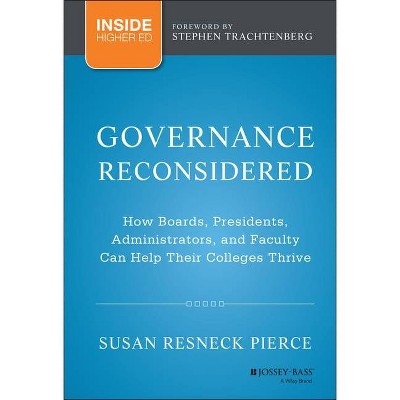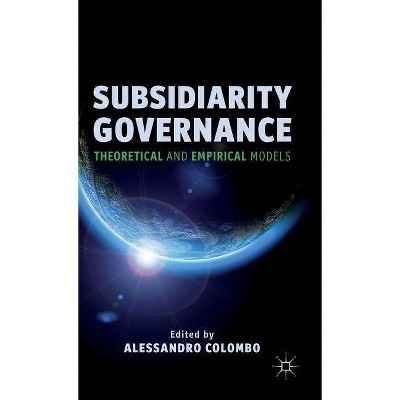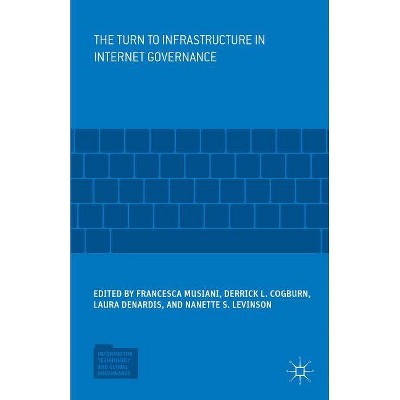Governance Reconsidered - by Susan R Pierce (Hardcover)

Similar Products
Products of same category from the store
AllProduct info
<p/><br></br><p><b> Book Synopsis </b></p></br></br><b>Revamp senior administration organization for more effective governance</b> <p><i>Governance Reconsidered: How Boards, Presidents, Administrators, and Faculty Can Help Their Colleges Thrive</i> takes an in-depth look at the current practice of governance in higher education and explores solutions for more effective functioning. Written by a former college president, the book provides an insider's perspective on the growing tensions around the traditional shared governance model and identifies the key challenges facing trustees, presidents, senior administrators, and faculty.</p> <p>Traditional shared governance operations are typically time-consuming, process-laden, and slow to respond to the internal and external forces acting upon modern educational institutions. Higher education is facing increasing political and economic pressure, and senior administration frequently needs the flexibility to make institutional decisions quickly. Using recent public scandals as examples, <i>Governance Reconsidered</i> illustrates how the tension between the need for timely decisions and action versus the importance of mission and academic quality is creating a dramatic systemic problem. The book provides practical advice on the issues at the heart of the matter, including: </p> <ul> <li>The nature and pace of change on campus, including the pressures facing higher education</li> <li>Clarity about the roles and responsibilities of trustees, the president, and the faculty</li> <li>The campus community's role in decision-making activities</li> <li>How thriving universities can govern collaboratively</li> </ul> <p>The book also addresses the brand new challenges that affect higher education governance, including MOOCs, online learning, and rising questions about value and cost. Campus leaders must work together effectively to boost higher education, and <i>Governance Reconsidered</i> contains the questions and answers integral to implementing effective governance.</p><p/><br></br><p><b> From the Back Cover </b></p></br></br><p>As pressures mount in the academic world, more and more presidents and trustees are ignoring the traditional processes of shared governance by making decisions about academic matters that previously had been considered the primary responsibility of the faculty. In <i>Governance Reconsidered, </i> Susan Resneck Pierce examines the reasons for this trend, and how it has impacted American colleges and universities. </p> <p>Throughout her decades-long career as a faculty member, dean, academic vice president, president, and consultant, Susan Pierce has believed that colleges and universities are most successful when all constituencies (including trustees, the administration, faculty and staff members, students, and as appropriate alumni and the larger community) work collaboratively. But the landscape of higher education has changed in recent years, fraying the conventional notions and practices of shared governance. Confronted with unprecedented financial challenges, many boards now charge their presidents with responding rapidly to these challenges without extended and sometimes any consultation with the faculty. <p>To help institutions resolve this tension between the need for timely action and deference to the faculty's role in academic matters, <i>Governance Reconsidered </i>addresses these key topics: <ul><li>How the notions of shared governance have evolved over the last century</li><li>The nature of the pressures facing higher education</li><li>Clarity about the roles and responsibilities of trustees, the president, and the faculty</li><li>How trustees, presidents, and the faculty can work together in new ways to respond quickly to external challenges and at the same time preserve the integrity of the academic programs</li><li>How thriving universities govern collaboratively </li></ul> <p><i>Governance Reconsidered </i>also focuses on the impact on shared governance of the growing number of contingent faculty, online education, and increasing questions about the value of higher education. These matters have a profound effect on how institutions are run and on the actions of those who run them. <p>College presidents, trustees, faculty, senior administrators, and student representatives need to think in new ways about higher education governance, as well as how to apply those principles to build a prosperous institution. Readers of this book will learn from both cautionary tales and success stories from the world of higher education. These case studies demonstrate how Susan Pierce's inspirational view of shared governance can work in practice. <i>Governance Reconsidered</i> explains how to meet the challenges of today's higher education environment by enacting transformative change while simultaneously engaging faculties, boards, and communities.<p/><br></br><p><b> About the Author </b></p></br></br><p><b>SUSAN RESNECK PIERCE</b> is president emerita of the University of Puget Sound. As president of SRP Consulting, she advises colleges and universities on planning, effective board and presidential performance, board development, governance, and fundraising. She is the author of <i>On Being Presidential: A Guide for College and University Leaders</i> (Jossey-Bass, 2012).</p>
Price History
Cheapest price in the interval: 42.99 on November 8, 2021
Most expensive price in the interval: 42.99 on December 20, 2021
Price Archive shows prices from various stores, lets you see history and find the cheapest. There is no actual sale on the website. For all support, inquiry and suggestion messages communication@pricearchive.us




















